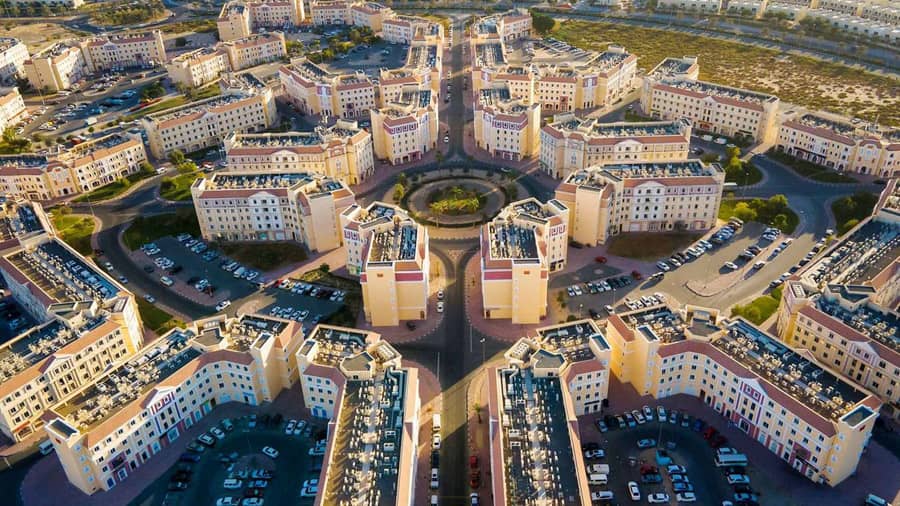Dubai has become an international nexus in real estate investment in a very short period. It is famous due to its contemporary infrastructure, high-end lifestyle and attractive tax regime which attracts buyers across the world. One of the real estate options available has captured the attention of many real estate investors, particularly those in Australia seeking to diversify their investment portfolios; this is the off-plan Dubai real estate.
As an Australian, Dubai has presented an avenue to exploit a stimulating and provision rich property market. However, the investment, as with any international investment, carries with it a set of considerations, risks and approaches. In this comprehensive guide, we will discuss all the Australian buyers need to know about off-plan investment in Dubai, including benefits and risks, financing and legal measures, and the practical tips.
What is Off-Plan Real Estate?
Off-plan real estate is purchasing of a property that is yet to be constructed or completed. Customers tend to leave a partial down payment with the remaining amount paid in phases as the home is being developed. After completion of the project, ownership is handed over and the owner can remain there or rented out or even sold.
When investing in Dubai off-plan property, most Australians can expect to acquire a unit that is modern and could cost them a little bit less than the current prices of ready building apartment units. This renders off-plan property a good entry point into the competitive property market in Dubai.
Why Australians are Drawn to Off-Plan Dubai
- Affordability – 4 Payment Plans
Unlike the Australian property markets, where large upfront financing is required of buyers, payments, in most cases, are flexible in the Dubai market. A 10–20 percent down payment is typical, with the remainder financed over construction stages. To Australians, this makes a direct off-plan investment much more viable in the budget. - Collaboration Potential
This is the Collaboration potential of high returns. Rental yields in Dubai usually fall between 6–10 percent, whereas in major Australian cities such as Sydney or Melbourne, they average between 2 and 4 percent. In addition to that, the initial prices on off-plan purchases are lower, which leaves some margin to appreciate the capital before handover. - Tax Benefits
Dubai does not impose annual property levies, inheritance taxes or capital gains taxes. The fact that there is no such thing as a strict tax system among Australians is an advantage to them in the long-term wealth building. - Lifestyle Appeal
Lifestyle reasons of many Australians include increasingly attractive Dubai, year-round sunshine and luxury developments and global connectivity. To consumers who are looking forward to buying a vacation home or future relocation destination, off-plan properties represent a good deal.
The Legal Framework: Protections for Buyers
Dubai has come a long way in amending its property legislation in favour of investors especially in off-plan deals. Australians should know all of these protections in order to make an informed decision before investing.
- Real Estate Regulatory Authority Oversight
RERA governs developer activity and makes sure that projects are registered and monitored. - Escrow Accounts
The buyer’s funds are held in escrow accounts that can only be accessed by the developers to cover construction-related costs and therefore mitigate the chances of misutilization. - Progress-Based Payments
Payment is often based on construction milestones that are certified by governmental inspectors. - Developer Vetting
Licensed developers are permitted to market and sell the projects on an off-plan basis, an added assurance to the foreign buyer.
These departments increase the level of transparency and security to the off-plan Dubai investments.
Key Risks Australian Buyers Should Know
Opportunities, however, also have challenges that Australian investors can expect.
- Construction Delays
Despite the decrease in risks, there may still be delays because of the regulations in Dubai. This can either interfere with rental-rotation schedules or capital gains targets. - Market Fluctuations
Like all property markets, Dubai has cycles. Share Market. This category cannot be ignored because external factors like oil prices, world economic factors or even geopolitical events can have an impact on the value of a property. - Exchange Risk
The UAE dirham (AED) is fixed to the US dollar. The exchange rate volatility between AUD and USD is a factor that Australian investors have to put into consideration since it can affect the cost of an investment. - Liquidity Constraints
Reselling off-plan properties before completion may be limited; this will be subject to the developer’s terms. This can touch investors who want to make quick exits. - Distance Factor
Australians might feel they are not able to trace progress since they are thousands of kilometres apart. A selection of respectable developers, as well as collaboration with legitimate representatives, is of utmost importance.
Financing Options for Australians
It is possible to finance off-plan investment in Australia in several ways:
- Self-Funding
Many Australians self-finance — they make purchases with their own money. - International Mortgages
Mortgages to foreign investors, including Australians, are available with several UAE international banks. The eligibility is usually based on an income verification and a property value. - Developer Financing
Certain developers resort to post-handover repayment plans where buyers can occupy/rent the residential property even as they make the payment.
It is important to do a careful financial planning especially among Australians who have to juggle between exchange rates, interest rates of mortgaged houses as well as long-term earnings.
Popular Off-Plan Areas in Dubai for Australians
There are several communities in Dubai that Australian buyers find attractive:
- Dubai Marina Waterfront apartments with vibrant nightlife, excellent amenities, and high rental demand.
- Downtown Dubai Home to the iconic Burj Khalifa and Dubai Mall, offering prestige, luxury living, and strong short-term rental potential.
- Palm Jumeirah Exclusive beachfront villas and apartments with premium lifestyle appeal and long-term value.
- Business Bay A fast-growing business district that attracts professionals, providing consistent rental income opportunities.
- Dubai Creek Harbour A modern waterfront development with strong potential for long-term appreciation and future growth.
Each of these communities offers unique lifestyle and investment benefits depending on the buyer’s goals.
Case Example: An Australian Buyer’s Journey
Suppose, Emma is a 42-years old investor, Sydney. She desiring to have an international move rather than in Australia in its costly house market. She did some research on the off-plan projects in Dubai then made investments on a one bedroom apartment in the Dubai Marina on a low down payment of 10 percent and instalments paid over a three years period.
The time it took to complete this project resulted in an increase of 15% on property values. Therefore, Emma decided to rent out the apartment to receive an annual yield of 7.5% investing in Australia which performed far better than her Australian investments.
Her allegory points to the abilities of Australian off-plan investment to provide a very good growth in capital as well as high rental yield when strategically undertaken.
Tips for Australians Entering the Dubai Market
- Research Thoroughly – Always check the developer’s track record and completed projects.
- Work with Licensed Brokers – Ensure agents are registered with RERA for security.
- Understand Payment Terms – Clarify deposit requirements, milestone payments, and handover dates.
- Plan Your Exit Strategy – Decide whether you aim for resale, rental, or personal use.
- Monitor Exchange Rates – AUD to AED fluctuations can impact your investment.
- Visit Dubai if Possible – A personal visit allows you to inspect projects, neighbourhoods, and meet developers.
FAQs for Australian Buyers
- Is off-plan property in Dubai safe for Australians?
Yes, with RERA regulations, escrow accounts, and milestone-based payments, Dubai offers strong protections. Choosing reputable developers reduces risks further. - Can Australians get mortgages in Dubai?
Yes, many UAE banks provide financing to foreign investors, though eligibility criteria may vary. Some developers also offer in-house financing. - What are the taxes on Dubai property for Australians?
Dubai does not charge annual property tax or capital gains tax. However, Australian investors should consider local tax obligations under Australian law. - Can I sell my off-plan property before completion?
Yes, but restrictions depend on the developer and project. Some require a certain percentage of payments before allowing resale. - Which areas are best for rental returns?
Dubai Marina, Business Bay, and Downtown Dubai are among the most popular for rental yields.
The Future of Off-Plan Dubai Investments
Dubai is striving to develop more of its infrastructure, smart city development and its luxury projects. Mega projects such as Dubai Creek Harbour and the increase in the area of Expo City guarantee the growth in the long term. This implies that Australian off-plan investment is likely to continue to be profitable in the next ten years or so as developers develop more innovative payment systems and projects that are environmentally friendly.
Summary
With prices translating to an enviable mix of affordability, high returns and lifestyle luxuries, off-plan Dubai property is a golden opportunity for Australians looking to invest in global real estate. It is able to compete effectively against the pricey markets of Australia, due to flexibility in payments, tax savings, and an enabling legal environment.
Nonetheless, to succeed in Australian off-plan investments, one needs to plan the investment process thoroughly, i.e. select experienced developers, become aware of the potential sources of prosecution risk, oversee currency risk, and align investment objectives with market trends.
The Dubai real estate market keeps reinventing itself, and those Australians with the intention and readiness to take the plunge are entering not just the purchase of property but an avenue to long-term financial growth and global investment diversification.
























